Phoolan Devi led a life of crime before she entered politics and became a popular cult figure among the lower castes — before she was murdered in 2001.
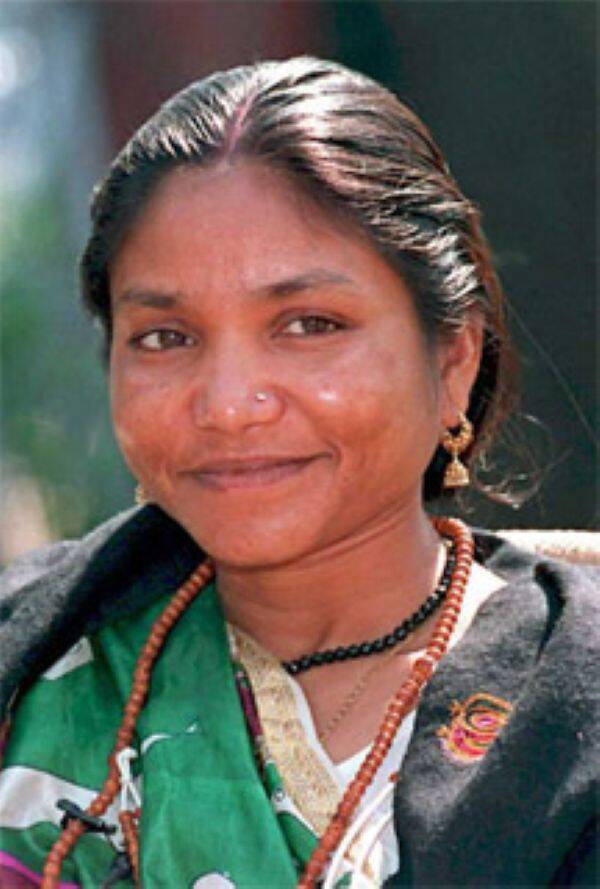
Wikimedia CommonsPhoolan Devi started as a bandit, but later became a politician.
Phoolan Devi, also known as the “Bandit Queen,” was a bandit who later became a politician. She served as a member of India’s parliament and became a popular figure, but was shockingly assassinated in 2001.
In the years since, Devi has become a legend. To some, she was a Robin Hood figure who robbed higher-caste villages and represented the poor and downtrodden. To others, she was a criminal responsible for the Behmai massacre, in which twenty men were allegedly killed on her command.
This is the full story of Phoolan Devi, from her rise as a “bandit” who robbed the rich to her shocking assassination at the age of 37.
Phoolan Devi’s Violent And Abusive Childhood
Phoolan Devi was born on August 10, 1963 in Uttar Pradesh, India, to a family of the Mallah subcaste, one of the lowest in India’s caste system. The daughter of a fisherman, Devi grew up poor. But she had a fierce spirit. When she heard that her uncle had cheated her family out of their land, Devi confronted her cousin, who responded by beating her.
When she was just 11 years old, Devi was married to a man three times her age in exchange for a cow. According to Devi’s obituary in The New York Times, she embarrassed her family by leaving her husband after a year, and subsequently became something of a pariah in her home village.
“Since you are unwanted in your husband’s house and your parents’ house,” her mother purportedly told her upon her return home, “why don’t you commit suicide by jumping into the well?”
Her life changed dramatically when Devi was 21. According to reporting by the Atlantic, her cousin had her arrested on fraudulent charges, after which Devi was beaten and raped by local policemen. Shortly thereafter, Devi was kidnapped by a gang of dacoits, or bandits, lead by a man named Babu Gujar. She was possibly taken by the dacoits on the orders of her cousin, but Devi has offered conflicting accounts about this event.
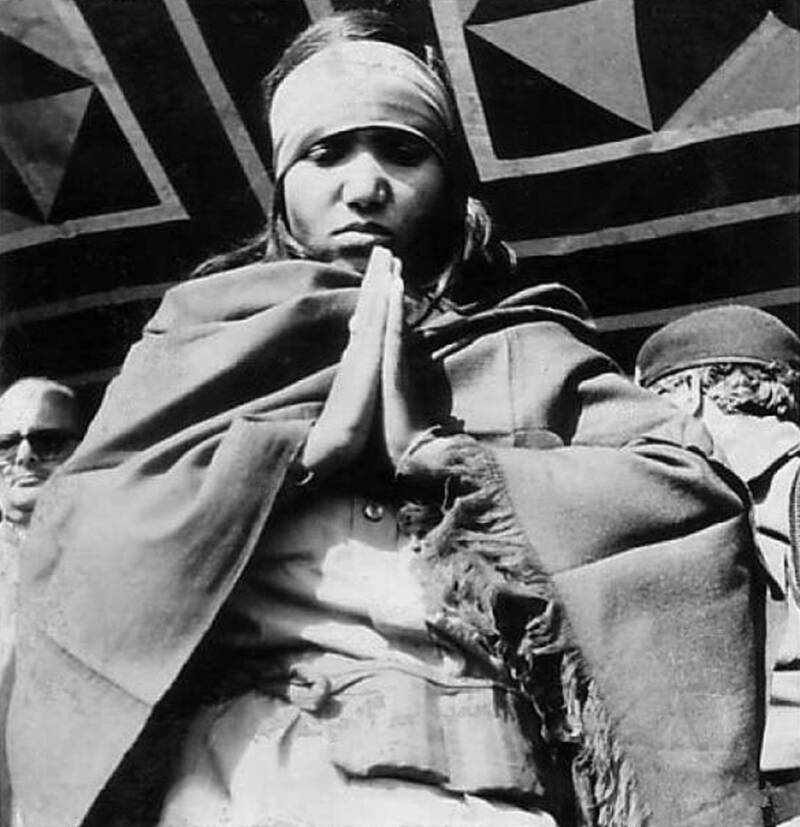
CPA Media Pte LtdPhoolan Devi had a violent, abusive childhood before joining a gang of bandits.
In any case, she was raped and beaten by Gujar for first three days. But then his second-in-command, Vikram Mallah, killed Gujar. Not only did Mallah then become the leader of the gang, but he and Devi became partners.
And soon, Phoolan Devi earned a reputation as a “Bandit Queen.”
The Bandit Queen — And The Behmai Massacre Of 1981
Vikram Mallah taught Phoolan Devi how to handle a gun, and together they lead their gang on a year-long raid of the Uttar and Madhya Pradesh countryside. They held up trains and robbed them, and attacked and stole from high-caste villages. And as stories of the dacoits spread, Devi became known as a Robin Hood-like figure called the “Beautiful Bandit.”
But the crime spree would come to a terrible end in August 1980. Then, two brothers who’d recently re-joined the gang after serving in prison, Sri Ram and Lala Ram, murdered Mallah to avenge Gujar’s murder. Then they kidnapped Devi and took her to the village of Behmai, where the brothers and dozens of upper caste Thakur men raped her for weeks.
Twenty-three days later, after Devi had been beaten and forced to walk through the village naked, she was quietly rescued by her allies. She then formed her own gang. But the “Bandit Queen” had not forgotten what happened in Behmai.
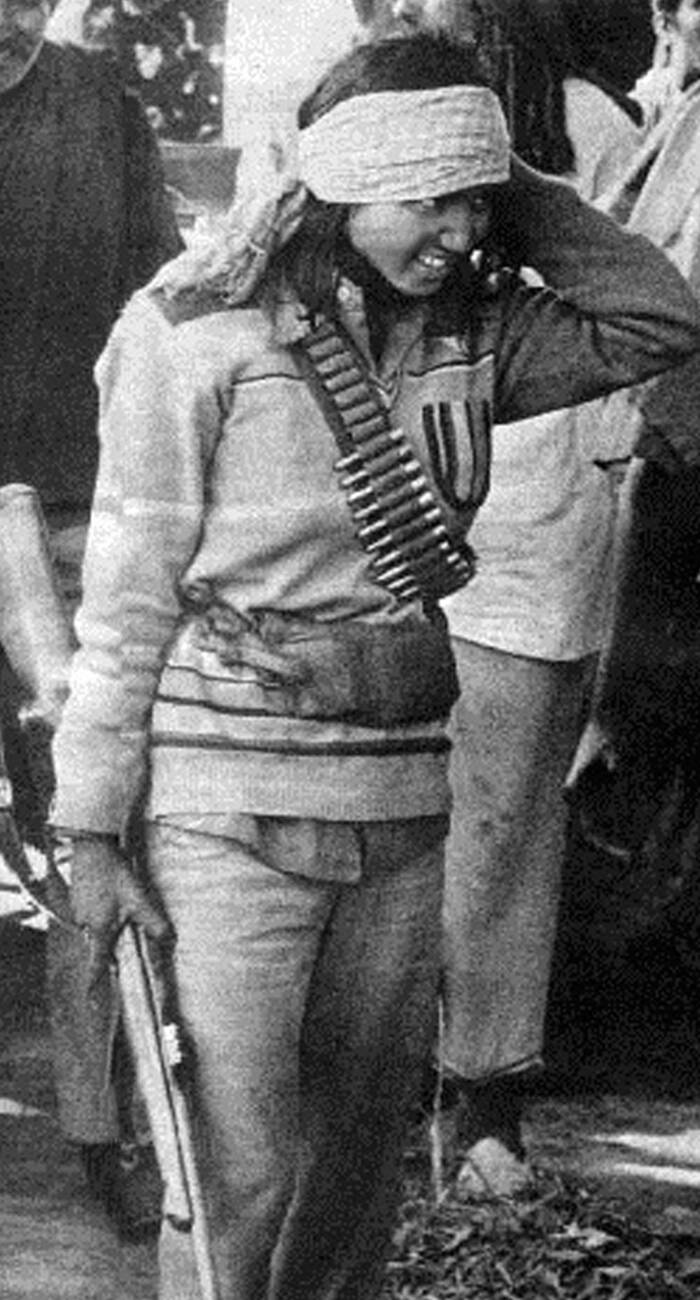
CPA Media Pte LtdPhoolan Devi purportedly orchestrated the Behmai Massacre, which killed 22, though she has denied it.
On Feb. 14, 1981, Devi returned to Behmai. As her men looted the village, she demanded that the villagers turn over Sri Ram and Lala Ram. When the brothers couldn’t be located, she allegedly ordered her gang to round up all the village’s Thakur men. They were marched to the nearby river and ordered to kneel by the water’s edge with their heads against the ground.
And then, Phoolan Devi reportedly gave the order for her men to open fire.
Of the 30 men they’d gathered, 22 were killed in the so-called Behmai massacre. It was shocking for several reasons — not only was it the largest dacoit massacre in India’s modern history, but it had been ordered by a lower-caste woman, against a group of higher-caste men.
Phoolan Devi then went on the run for two years before she agreed to peacefully surrender.
How Phoolan Devi Went From Serving Time In Prison To India’s Parliament
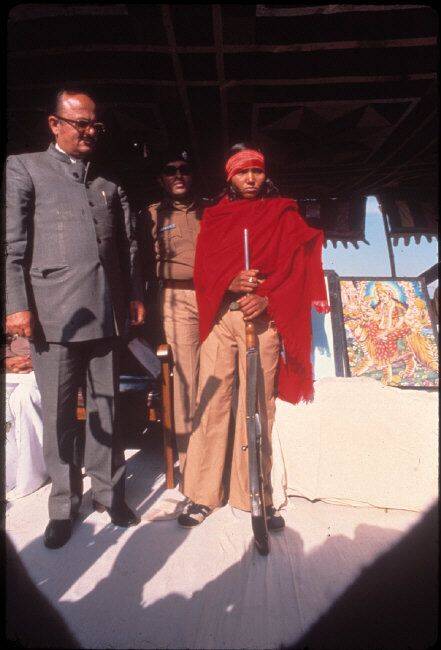
Wikimedia CommonsPhoolan Devi surrendering to the government on February 13, 1983.
In 1983, Phoolan Devi surrendered to authorities in Madhya Pradesh as thousands of people looked on. Charged with 49 crimes, Devi was put in jail for 11 years.
Then, in 1994, Devi walked out a free woman. That same year, the film Bandit Queen about her life premiered at the Cannes Film Festival, amplifying Devi’s reputation across the world.
“I will work for the upliftment of women and the downtrodden,” Devi proclaimed, according to The New York Times. “Women all over India are repressed. It must be brought to an end.”
She rode her new popularity, as well as the new importance of the lower castes in Indian politics, to a seat in India’s parliament. In 1996, Devi won a seat with the Samajwadi (Socialist Party), and was elected a second time in 1999. She became a popular politician and a cult figure, a champion for the downtrodden and the lower castes.
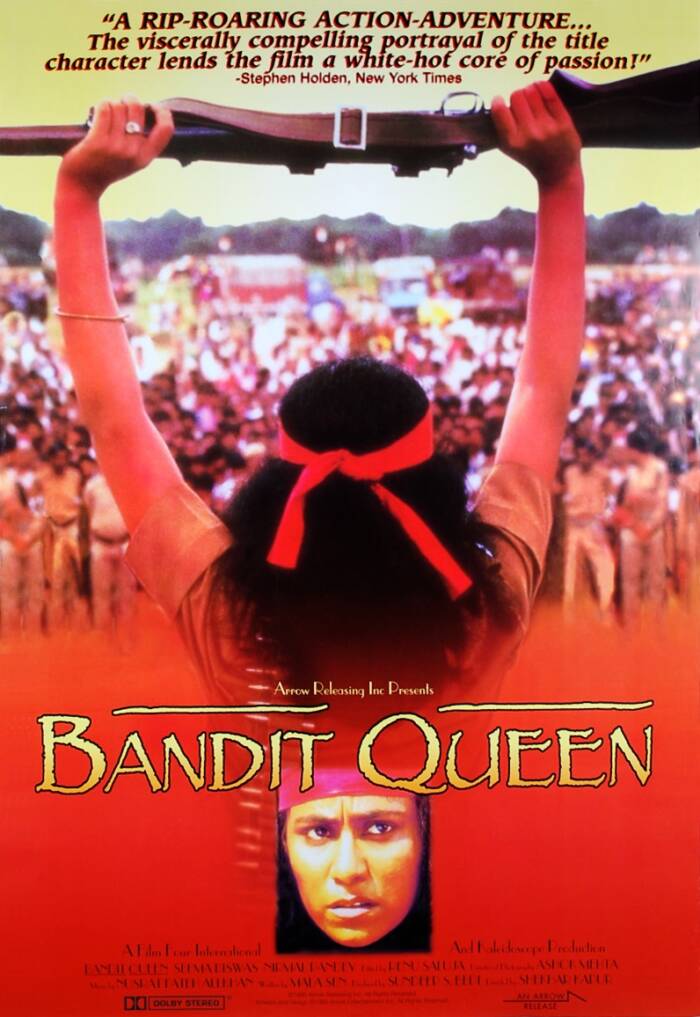
IMDBThe 1994 movie Bandit Queen is based on Phoolan Devi’s life.
But then, on July 25, 2001, Devi was shot dead by three masked gunmen outside her home. She was 37 years old.
“No one likes it when someone, especially a woman, from the lower classes rises and makes a name for herself,” Devi’s husband Umed Singh, bitterly stated.
Just days later, a man named Sher Singh Rana surrendered to the police, claiming he had assassinated Devi in retaliation for the Behmai massacre. He was the only gunman caught, and he was sentenced to life imprisonment in 2014. However, Rana later appealed his sentence and was set free, with the condition that he check in with the police every six months.
He may have succeeded in killing Phoolan Devi, but Rana did little to erase her legacy. On the contrary, in the years since her death, Devi has become an important cultural figure, an inspiration to many as a woman who defied her circumstances in the boldest ways possible.
After learning about Phoolan Devi, the Bandit Queen of India, check out Queen Nzinga, the African leader who fought off slave traders. Then, read about Irish pirate Grace O’Malley, who ruled the Seven Seas.





